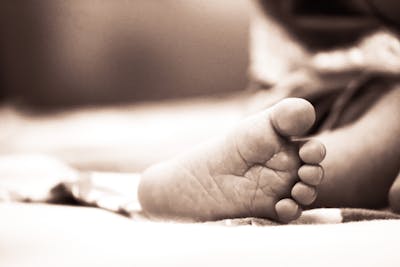There are limited exceptions to the prohibition, which goes into force on September 12. In cases of rape and incest, prior to 10 weeks after fertilisation, to safeguard the mother's life and physical health, and if a foetus is found to have a fatal abnormality, abortions would be permitted.
As was previously suggested in the Senate, victims of rape and incest would not be needed to sign a notarized document attesting to an attack.
All abortion clinics would lose their permits since, under the proposed law, abortions can only be carried out in hospitals or outpatient facilities that are owned by hospitals.
The language strengthens the current Indiana legislation, which states that a doctor "may" lose their licence. A doctor who conducts an unlawful abortion or neglects to make mandatory reports must also lose their medical licence.
While the Justice Department has launched a lawsuit to defend abortion access in light of the Supreme Court verdict, several US states are debating access restrictions.
Governor Eric Holcomb said in a statement announcing his signature on the bill, "I am personally most proud of every Hoosier who came up to courageously speak their opinions in a debate that is unlikely to end any time soon."
In my capacity as your governor, I promise to continue being receptive.
After the Indiana House passed the prohibition 62-38 and the Indiana Senate approved it 28-19, he gave his consent.
Following the Supreme Court decision in June that eliminated constitutional safeguards for the operation, Indiana was one of the first Republican-run state legislatures to discuss tougher abortion regulations.
But after West Virginia lawmakers turned down the chance to be that state on July 29, it is the first state to enact a ban through both houses.
After the vote, Senate President Pro-Tem Rodric Bray told reporters that he was "happy to be finished with this, one of the more arduous things that we've ever done as a State General Assembly, at least certainly while I've been here."
I believe this to be a tremendous opportunity, and we will build on it moving ahead.
Senators from all parties expressed regret about the provisions of the measure and its effects on the state, particularly on low-income women and the healthcare system. All 11 Democrats and eight Republicans voted against the bill, albeit their justifications for doing so varied.
Democratic senator Jean Breaux of Indianapolis, who on Friday donned a green ribbon on her lapel to show support for abortion rights, declared, "We are regressing on democracy."
What additional privileges, freedoms, and rights are under threat or ready to be taken away?
Senator Mike Bohacek, a Republican from Michiana Shores, spoke about his daughter, 21, who has Down syndrome. Bohacek voted against the bill because she believed it lacked sufficient protections for disabled women who are sexually assaulted.
She would be devastated if her favourite stuffed animal disappeared. Imagine forcing her to carry a child all the way to term," he remarked before choking up. He then dumped his notes on his seat and left the room.
The bill's enforcement mechanisms against doctors, according to Indianapolis-based Republican senator Mike Young, are not strict enough, he claimed.
These arguments highlighted Indiana residents' own disagreements on the subject, which were evident in the hours of testimony lawmakers listened to during the past two weeks.
Residents on both sides of the debate rarely, if ever, backed the measure because opponents of abortion rights argued that it did not go far enough while pro-life campaigners thought it went too far.
The debates took place against a backdrop of changing abortion politics across the nation, with Democrats potentially benefiting from an election year boost as Republicans experience some internal party strife.




.png)
The opinions posted here do not belong to 🔰www.indiansdaily.com. The author is solely responsible for the opinions.
As per the IT policy of the Central Government, insults against an individual, community, religion or country, defamatory and inflammatory remarks, obscene and vulgar language are punishable offenses. Legal action will be taken for such expressions of opinion.